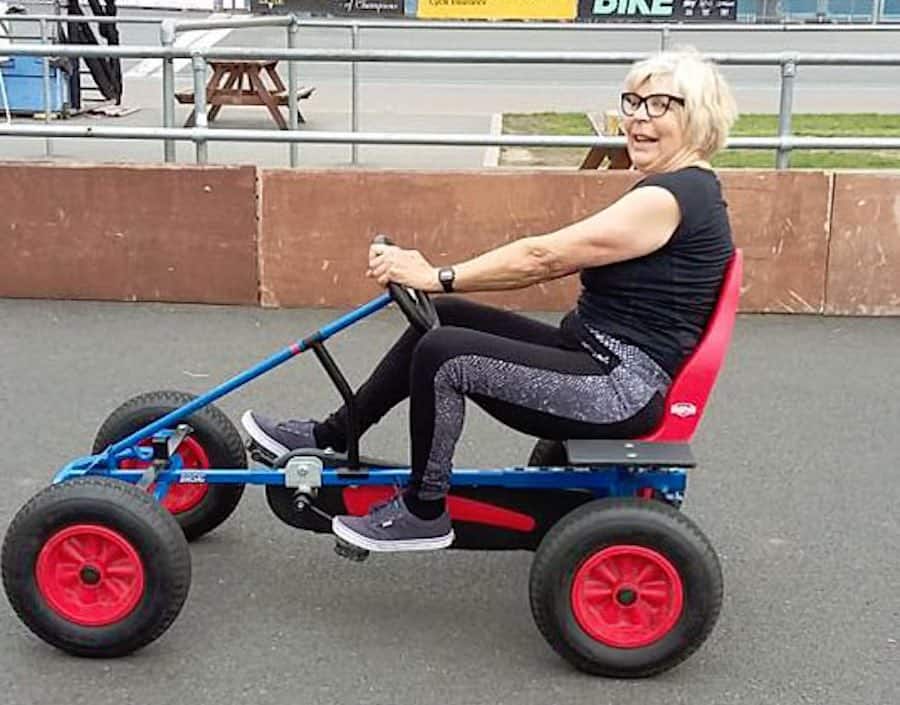Valerie Elliott cycled at Wheels for Wellbeing sessions at Herne Hill Velodrome for about year. She’s now moved to Leicester, so can’t continue with us but gladly shared her experience of how cycling has helped her to recover from stroke.
How did you first hear of Wheels for Wellbeing?
Physiotherapist at Pulross Centre I was seeing after suffering a stroke gave me the leaflet advertising WfW cycling sessions and told about the scheme. I was keen to go but transport was a problem at first, because the velodrome is quite far from any bus stop.
Finally, I managed to get registered with Dial-a-ride. I was there every Monday for the past year.
What was the most important reason for you to keep coming?
I cycled before the stroke. I used my bicycle to get pretty much everywhere and I loved it. Cycling is Lambeth is nowadays so much easier and safer. I was cycling my whole life.
My stroke happened as I got off my bike but the doctor said that cycling had nothing to do with it. The stroke was caused by high blood pressure. My grandson didn’t want me to cycle ever again but I love it so much I didn’t listen to him. I love being outside and when I went to WfW sessions I loved positive attitude of people. No weather is bad for your team. They’re there rain or shine.
What’s your first session memory?
I remember being welcome by very friendly and helpful people. Everybody has such a positive attitude. I love the fact that somebody was picking me up in a side-by-side at the reception desk to take me down the steep part of the velodrome.
It was opposite when I went for swimming class for stroke survivors. Everybody was telling me not to have my hopes up about being able to walk again. At the cycling sessions nobody has said anything like that.
How has cycling helped you in recovering from stroke?
I wouldn’t be where I am now without cycling. Two months after stroke I wasn’t walking and now I’m able to walk with a frame.
Was it difficult to start cycling?
At first session I did around 20 laps in about 2hrs. Later I stopped counting. I was enjoying it so much that didn’t know how many laps I did. If I was chatting to somebody on the side-by-side, I wouldn’t even now when the time had gone. I used tricycle as well. Whenever I arrived ‘my’ bike was already waiting for me.

Would you say that cycling has not only physical benefits but also social?
It’s not easy to make friends after stroke, because your mobility is limited, so I was glad I could make it to the sessions. Once, I invited a friend I met on holidays in Portugal to come and cycle with me. We cycled together on side-by-side chatting the whole time. The session became a social event to me. I also cycled with my daughter on side-by-side. She came to visit me from Australia and came to a session. She enjoyed it a lot.
Why would you recommend cycling to other people who had stroke?
Cycling is a great sport – it’s easy to do for anyone. If you go swimming you need to change, dry afterwards. With cycling you just hop on the bike and that’s it. And anyone can do it. Before stroke I did triathlon until I was 60. I hope to keep my level of activity but after moving to Leicester I’m not sure if I find suitable activities.
I’m very grateful to the whole team at WfW for all you do. It’s amazing.
Thank you.
